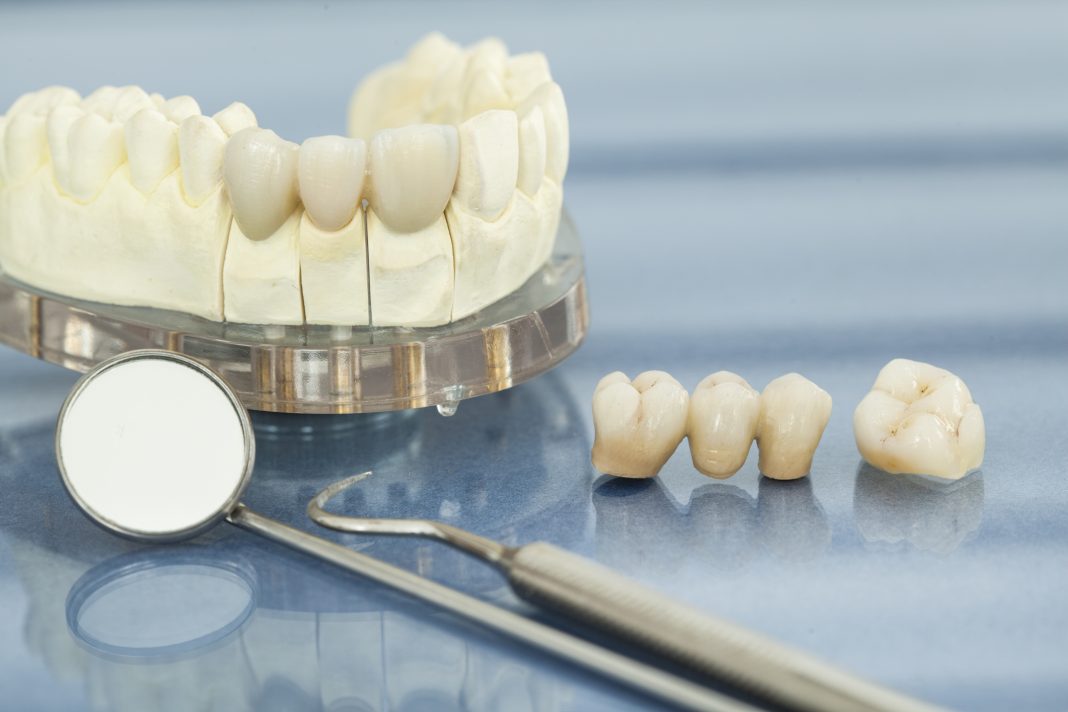Balika Reddy, Dentist at Harley Street Specialist Hospital, argues that the UK’s oral health is a postcode lottery and is in dire need of levelling up
The current NHS contract to deliver dental care, introduced in 2006 is currently presenting a number of big challenges. It is time for a new NHS contract that trusts the profession’s ability and skills to deliver wider access and preventative care. Recent changes to the contract are a very small step in the right direction and at the heart of this is improving access and outcome for people through preventative models of care.
Oral health varies around the UK, in that it is a postcode lottery. We should be under no misconception that there is a quick fix to this problem. This is a nationwide issue, whether that service is being delivered on the NHS or the private sector, it is not possible without a prerequisite number of the workforce. As Professor Iain Chapple from Birmingham University, speaking on behalf of Johnson & Johnson stated “‘Levelling Up’ comes in the long tradition of attempts to describe a political philosophy in two words. Eventually, it will go the way of the “big society” and “cool Britannia,” to become a forgotten footnote in history books. Based on the government’s recent efforts, it seems likely that the access crisis and the oral health postcode lottery, will outlast them and these kinds of slogans”.
Why you can’t really achieve good health & well-being without good oral health
Tooth decay is one of the most common diseases in the UK. One in three (33%) adults have signs of tooth decay, as well as around one-in-four (24%) five-year-olds. Those from disadvantaged backgrounds are more likely to suffer from tooth decay and be admitted to hospital because of it. Tooth decay and other oral diseases can have a negative impact throughout life and can cause pain, infection and lead to difficulties with eating, sleeping, socialising and wellbeing. Making healthier food and drink, that contains less sugar, and is more affordable for families on lower incomes.
The recent government decision to delay the ban on cheap offers on unhealthy foods is extremely disappointing, despite attempts to justify it as a means of offsetting the effects of rising inflation The move is likely to exacerbate both oral and general health in the future.
Will a nationwide water fluoridation programme drastically cut rates of tooth decay, especially in children?
A nationwide water fluoridation programme would drastically cut rates of tooth decay, especially in children.
Currently, around 11% of the population benefits from fluoride being added to their water supply. This is despite the evidence that fluoridation reduces hospital admissions (for tooth decay) by between 45% and 68%. The dentist’s maxim, “Healthy gums don’t bleed”. Effective brushing of the teeth along with regular interdental cleaning is essential for keeping gums healthy. Mouthwashes containing fluoride (with more than 100ppm fluoride) are clinically proven to reduce plaque/germs and as such, offer additional benefits.
Do we need to move away from just treating diseases to preventing them?
It is clearer to health services now than ever before about the link between inequality and health outcomes, with socioeconomic inequalities clearly linked to poorer outcomes, oral health included. We need to move away from just treating diseases to preventing them. It is high time we made a plan to improve access to dental care and increase education around preventative methods. Health leaders are also keen to raise awareness about how the health of your mouth has a direct link to the health of your body. Studies have shown that poor oral health; specifically severe gum disease, can lead to an increased risk of heart disease, strokes, diabetes, dementia and poor pregnancy outcomes.
The WHO Global strategy for tackling oral diseases
On 27th January 2022, the Executive Board of WHO endorsed the Global Strategy on Oral Health. This strategy is an addendum adopted by the World Health Assembly in May last year. It addresses a major step in integrating oral health into WHO’s agendas on non-communicable diseases, primary health care and universal health coverage. The Global Strategy on Oral Health aims to garner political traction for implementing oral health into national public health policies, a shift of focus from curative to preventive oral health care, innovative workforce models, people-centered oral health care that covers the whole human life course and better use of digital technologies. Oral health should no longer be a stand-alone issue in policymaking and delivering service and care to the public. This process is set to be completed by 2030.
Oral health in the EU focus
According to the Platform for Better Oral Health in Europe, oral health determines quality of life, is crucial for well-being plus an integral aspect of our general health. Did you know that the socio- economic burden of oral diseases is considerable in the EU? That they impact school-aged children and adults, and make up 5% of public health spending? “Treatment expenditure exceeds that for other diseases, including cancer, heart disease, stroke and dementia. This is disturbing, given that much of the oral disease burden is preventable,” Better Oral Health in Europe adds. (1)
The Platform for Better Oral Health in Europe welcomed the adoption of the global oral health strategy at the 75th World Health Assembly in May. This recognises the major burden of oral health on health systems globally, with an estimated 3.5 billion cases of oral diseases and other oral conditions occurring globally in 2019. It also represents a crucial first step in the implementation of the WHA74.5 resolution on oral health.
While the EU’s statement supports the adoption of the global oral health strategy, its successful implementation depends on coordinated and strong action from the Member States. Also, the EU has a vital part to play in facilitating this by providing direction and guidance. “We reiterate our call for the European Union to work closely with the WHO Regional Office for Europe to ensure that a central coordination body drives the implementation of the WHO’s global oral health strategy through programmes in Europe and in the EU,” Better Oral Health in Europe explains. (2)
Sources
1. CECDO The Council of European Chief Dental Officers https://cecdo.org/
2. GDPUK.com, Time to “level up” the UK postal lottery for dentistry, published: 24th May 2022, written by Peter Ingle.
3.nhsuk.com news, 19th July 2022. https://www.england.nhs.uk/2022/07/better-access-to-nhs-dental-services-under-new-reforms/
4. www.theadg.co.uk, Lewis Robinson Head of Public Affairs & Policy,
Ian Gordon, Ruth Chesmore and Sandra White.
5.“30 years of Hurt”, Richard Sloggett, December 2020.
https://www.theadg.co.uk/wp-content/uploads/2020/12/30-Years-of-Hurt-Report.FINAL_.Dec20.pdf
6. World Health Organization, 2021. www.who.int
References
1. http://www.oralhealthplatform.eu/
2. http://www.oralhealthplatform.eu/news/the-platform-for-better-oral-health-in-europe-welcomes-the-adoption-of-the-global-oral-health-strategy-at-the-75th-world-health-assembly/












It is without a doubt